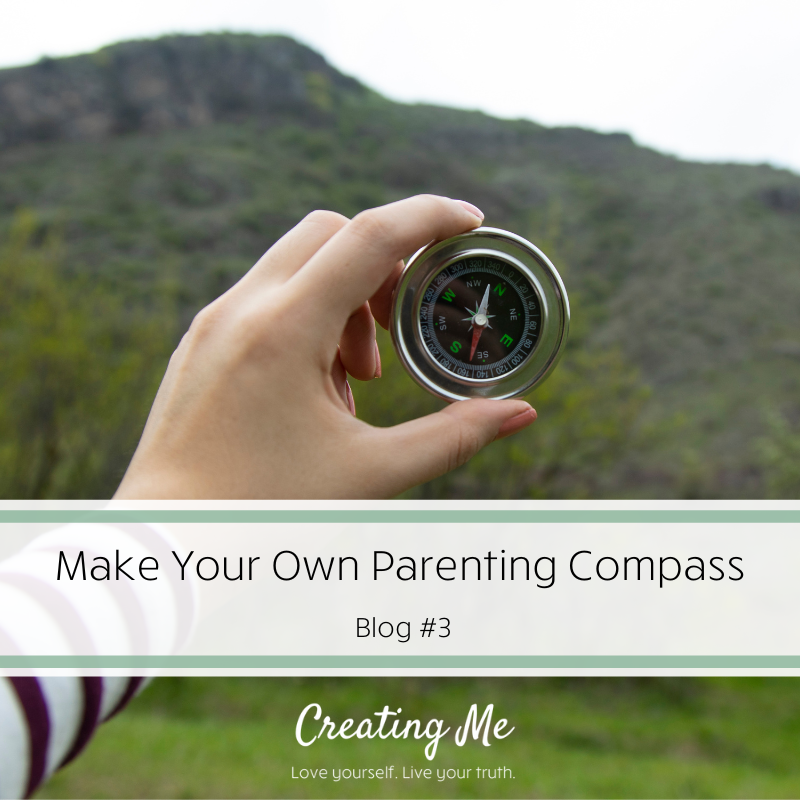Make Your Own Parenting Compass
A couple years ago, my son pushed my daughter into the fireplace. It was every bit as traumatic as it sounds.
They were playing in the living room, when a dispute broke out over a toy. My 3-year old son, L, lost his little temper and pushed his sister, C. She happened to fall towards the gas fireplace, which had been running all morning. Instantly, she had 2nd degree burns on two-thirds of her arm.
The first thing I did was treat C’s wound and call the ambulance (while sobbing hysterically.) That action was a no-brainer.
The thing that surprised me most was how conflicted I was on how to deal with L.
After I called the ambulance, I looked up at L for the first time. He was rooted in the same spot he was standing when he pushed his sister. His little eyes were huge. He looked petrified. When I made eye contact, his eyes immediately welled up with tears.
“Are you OK?” I asked.
“No!” he shrieked. “I hurt C!” And he ran into my arms, sobbing.
Parenting compass
I’ve taken a lot of parenting courses and of all the learning I’ve done, the most powerful tool has been the DIY parenting compass.
The idea is pretty simple: decide in advance what you value most, then let those values guide your parenting choices.
Making your compass is easy. Grab a piece of paper and write down the 5 traits you most want your children to have as adults. Then, when you’re faced with a tough decision, you can ask yourself, “How could I use this situation to help my child develop those traits?”
Here are some traits you could consider. You may not think some of these are important and you may want to add others. It’s entirely your choice. Choose any 5 traits you think will most help your child thrive as an adult.
Kind
Empathetic
Resilient
Respectful
Entrepreneurial
Responsible
Grateful
Emotionally intelligent
Self-aware
Happy
Independent
Self-motivated
Critical thinking
You’ll always know what to do
Once you have your parenting compass, you’ll know what to do in any situation – including when your son pushes your daughter into the fireplace.
As adults, I want my kids to be responsible and self-aware, amongst other things.
Using those traits as a roadmap, here’s how I dealt with L.
Self-aware: I started by helping L sort through the experience for himself. I had seen how traumatized he was and I wanted him to understand what was going on inside of him. So, I compassionately asked him questions like:
What happened today? Why did you do that? How are you feeling? Why? How do you think C is feeling? Why?
Responsible: I want my kids to understand and be accountable for the consequences of their actions. Knowing this, I explained the consequence of his action.
“It really hurt C when you pushed her. I know you didn’t mean for her to be burned, but when you get angry and push others, you can really injure them.”
Then, I asked L to suggest ways that he could be accountable for his actions.
“What could you do for C, that would help her feel better?”
Once we started talking about solutions, he sat up a little straighter and looked more energized. He truly wanted to help his sister. He decided to make her a card, give her a $5 bill from his piggy bank (C is fascinated by money) and hold her hand when we changed her burn dressings.
Be proud of your parenting choices
You may not agree with how I handled this situation. You may choose to deal with your children differently. And that’s perfectly OK.
When you have your own compass, you can choose to be proud of your decisions, even when the moms at playgroup do things differently.
Book a free coffee chat
Could you use a little support to get through this rut, Mama? Let’s have coffee.
During a free, virtual coffee chat, we’ll talk about your unique situation and figure out:
What’s not working
What you want instead
The pathway to get there
From there, we can explore whether Creating Me offers the right tools to help you reach your goal. And if we don’t, I’ll connect you with other resources that might fit better.
